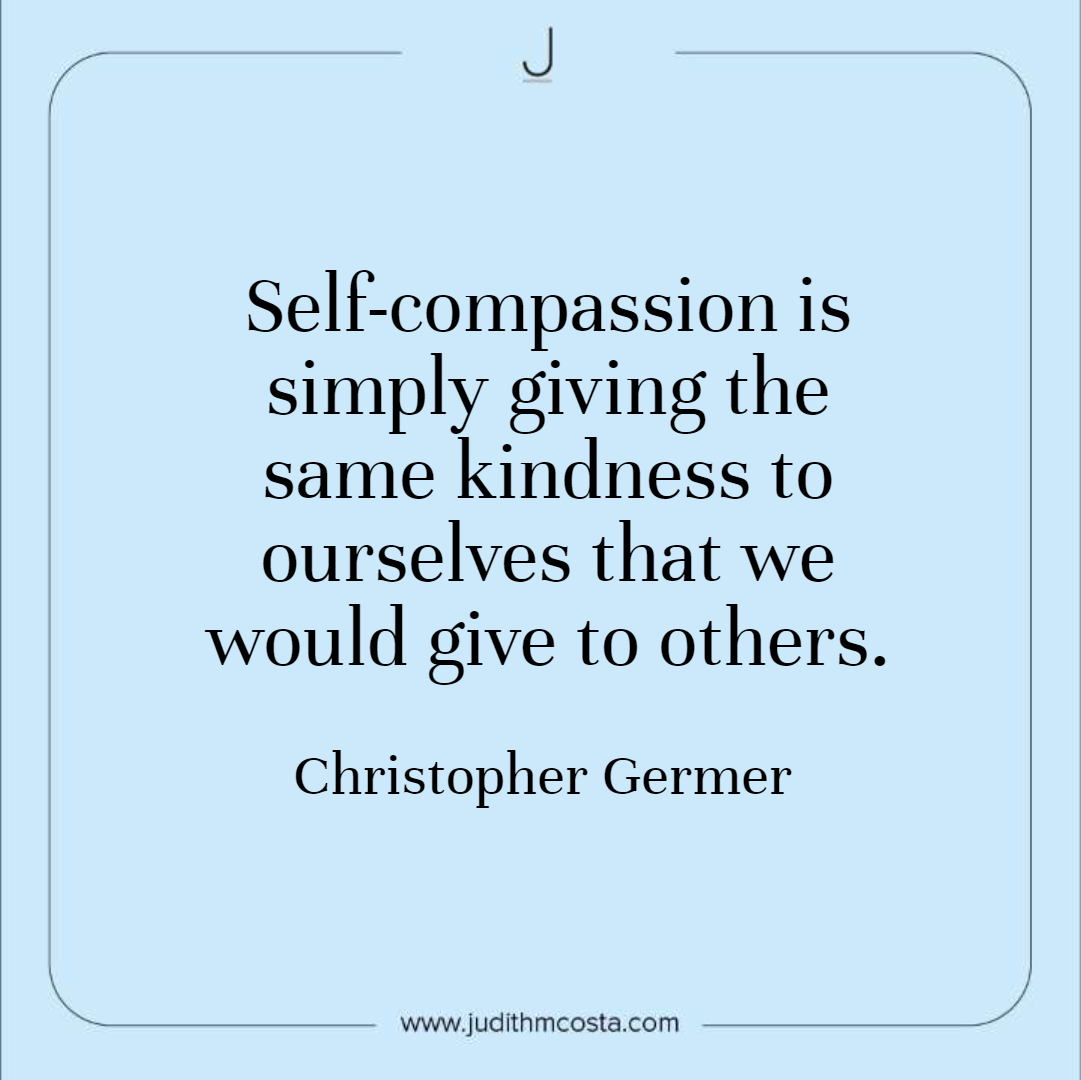|
Self-compassion is not a word we use frequently. When we see a being suffering, we instantly feel compassion, but often the same does not happen when we are going through a tough time in our lives. We may judge and blame ourselves or get angry or frustrated about what is happening to us. You may think that compassion doesn't apply to you, that it is something we offer only to others. But you need it as much as others do when you are suffering, feeling overwhelmed, or facing difficulties. Compassion means "to suffer with," but it differs from empathy or sympathy. Those allow us to feel for others and to connect with them. But compassion invites you to take action. Being compassionate is not only seeing someone going through something hard and being able to put yourself in their shoes or understand their feelings. When you feel compassion, you want to do something to alleviate the pain. You want to help that being in any way you are capable of. You want to show your Love in action. Self-compassion is turning compassion inwards. It means realizing that you are experiencing a difficult situation and deciding to nurture yourself by being kinder, more understanding, and more supportive towards yourself. When something painful is happening in your life, you need to recognize and accept your suffering. What we usually want is to make the pain disappear. Showing the world a façade like nothing is happening and to continue suffering on the inside won’t work. What can you do for yourself? What actions can you take to ease your pain and suffering? What would you say to someone in the same situation you are in, and how would you treat them? Practice self-compassion because you care about yourself and your well-being. It will help you to recover from any setback you face in life and to be more resilient. You can be as compassionate with yourself as you would be with someone you Love. Look at yourself and what is happening in your life, and give yourself compassion in action. It may be necessary for you to stay with the suffering you are experiencing, but to be at your own side while this is happening, with kindness. Don’t abandon or criticize yourself when things get complicated. You need to be there for yourself in these situations. Self-compassion doesn't soften you or take away the power to resolve any challenge you are facing. Many people believe that if you are self-compassionate, you will become indulgent and relaxed, and they use self-criticism as the power to transform their lives. Being hard on yourself is culturally accepted as the way to be when you need to change something within yourself or resolve a challenging event. But there is a different way to change your life and face what is happening. It includes taking care of yourself while accepting the situation and the pain it is causing you, and practicing self-forgiveness if it applies. We all have not-so-good days; we face difficult moments, we feel we made mistakes, things go wrong, we lose people we Love, we suffer an illness, or many other situations along the way. In the middle of a hard experience, you may feel that you can do nothing to feel better, but you can always tend a caring hand towards yourself. It is the moment to be there for you because you are important. When tough stuff appears in your life, you have an opportunity for self-compassion. Whatever happens to you is not what matters, what matters is how you decide to react to it and interpret it in the context of your life. Self-compassion is a choice you can make. Remember that it is always available to you. "If your compassion does not include yourself, it is incomplete"
Jack Kornfield
0 Comments
|
Author
Judith Costa is a Life and Love Coach, Seminar Leader, Writer and Speaker. She has a Masters degree in Psychology & Psychotherapy and an MBA. She helps her clients to overcome their blocks to Love, to Love themselves and to manifest the relationship they want. Archives
November 2023
Categories
All
|
TELEPHONE |
EMAIL
|
JOIN USSign Up Now For Email Newsletters you can trust. |



 RSS Feed
RSS Feed